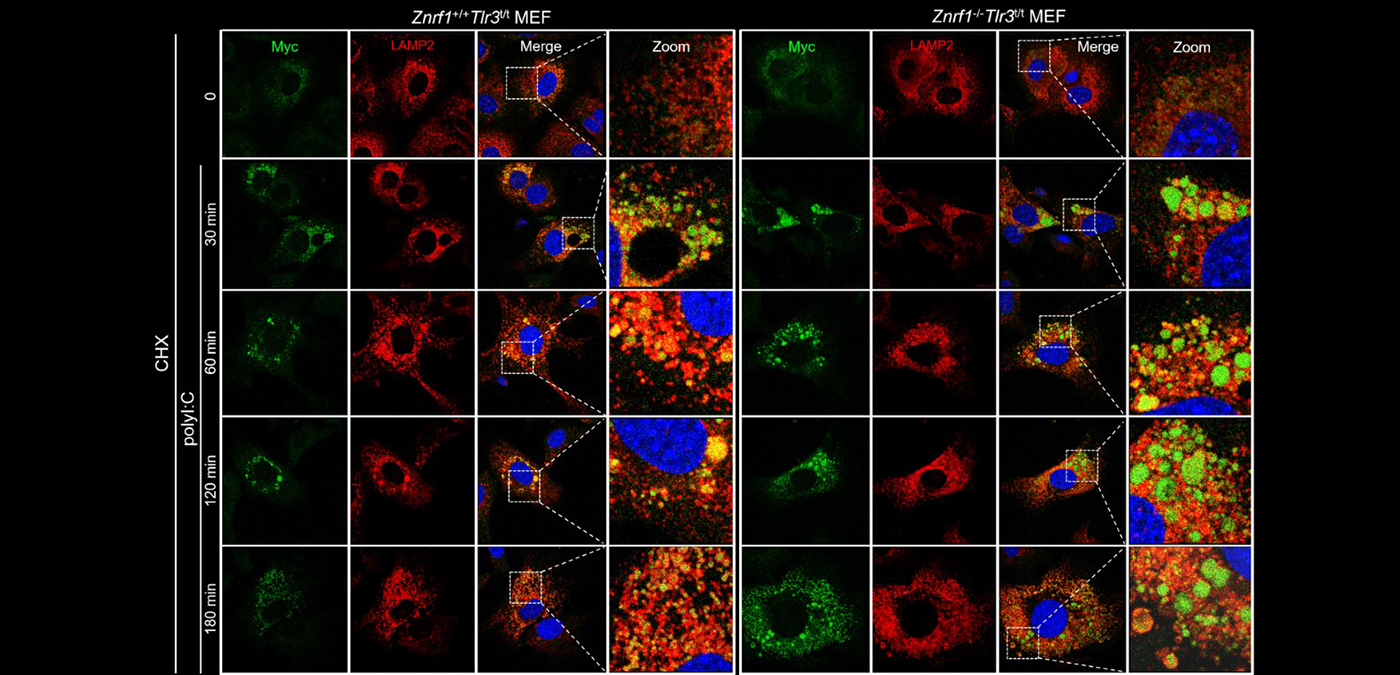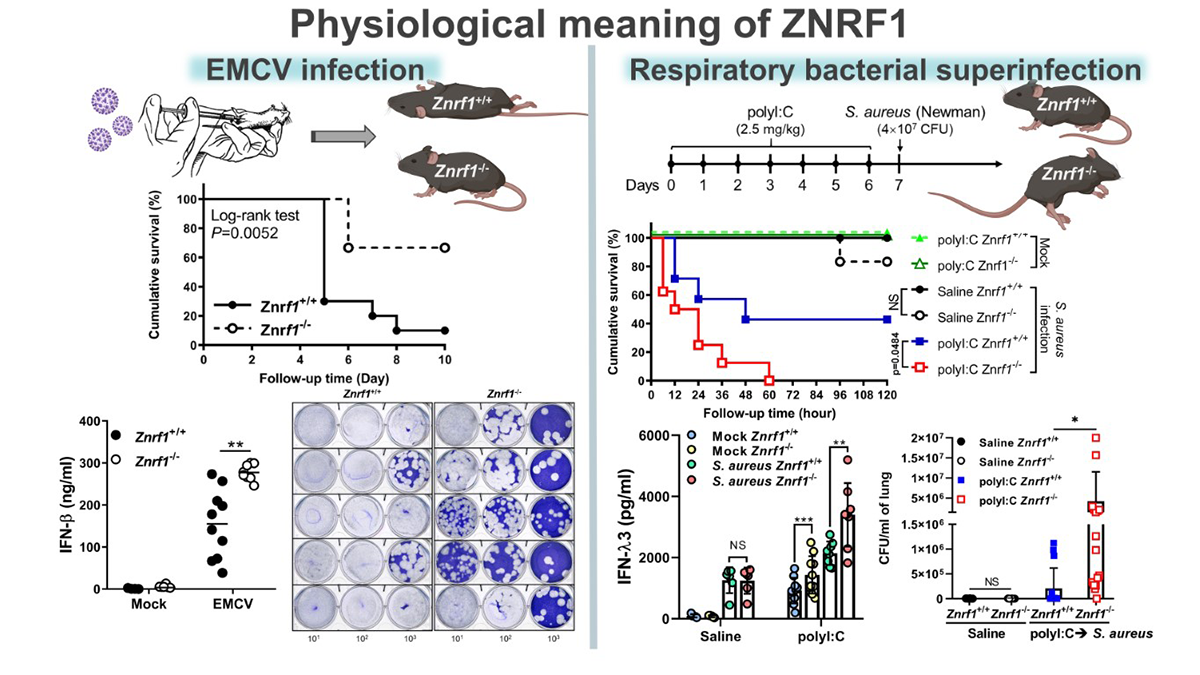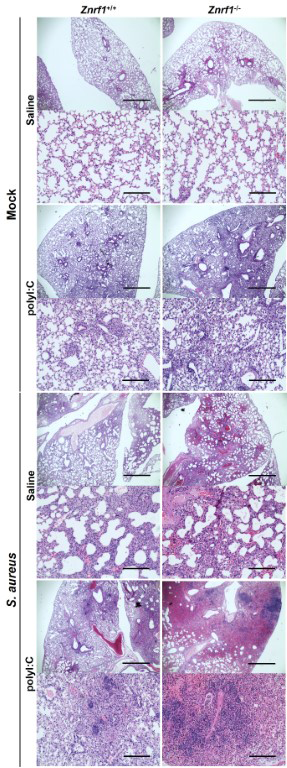▎ACHIEVEMENTS
Discovery of the Regulatory Mechanism of Toll-like Receptor 3
Triggering Interferon Production and Viral-induced Respiratory Bacterial Superinfections

Immunofluorescence staining adopted to observe how ZNRF1 promotes TLR3 trafficking from endosomes to lysosomes.
The team led by Prof. Li-Chung Hsu from NTU Institute of Molecular Medicine, College of Medicine revealed for the first time the regulatory effect of the ubiquitin ligase ZNRF1 on the immune response mediated by Toll-like Receptor 3 (TLR3). This discovery provides new research directions for the treatment of bacterial superinfections caused by respiratory viral infections.
Type I IFN is an important cytokine in the antiviral process, but prolonged interferon production may cause autoimmune diseases. TLR3-driven interferon production is critical for the host to fight against specific RNA viruses. Professor Hsu and the team found that ZNRF1 can promote the trafficking of TLR3 from endosomes to multivesicular bodies/lysosomes, ultimately leading to the degradation of TLR3 and the disruption of interferon production. Mice and cells lacking ZNRF1 can better cope with encephalomyocarditis virus and SARS-CoV-2 infections because they produce more Type I IFN. However, mice lacking ZNRF1 are more susceptible to respiratory bacterial infections caused by viruses, further worsening lung damage.
The first author of this study is Professor Hsu’s PhD student You-Sheng Lin, and other members on the team include PhD students Yung-Chi Chang, graduate student Yu-Hsin Ho, physician Chih-Yuan Lee, Dr. Ting-Yu Lai and Prof. Sui-Yuan Chang, Prof. Yi-Ping Hsueh and Prof. Tsung-Hsien Chuang. The research was supported by NTU, the National Health Research Institutes and the National Science and Technology Council. The team will continue to dedicate their effort to conducting research related to the immune regulation of ZNRF1.

Graphical model summarizing regulation of TLR3 trafficking and type I IFN production by ZNRF1.

The physiological meaning of ZNRF1, a ubiquitin ligase.

H&E staining of histological sections of lung tissues.


